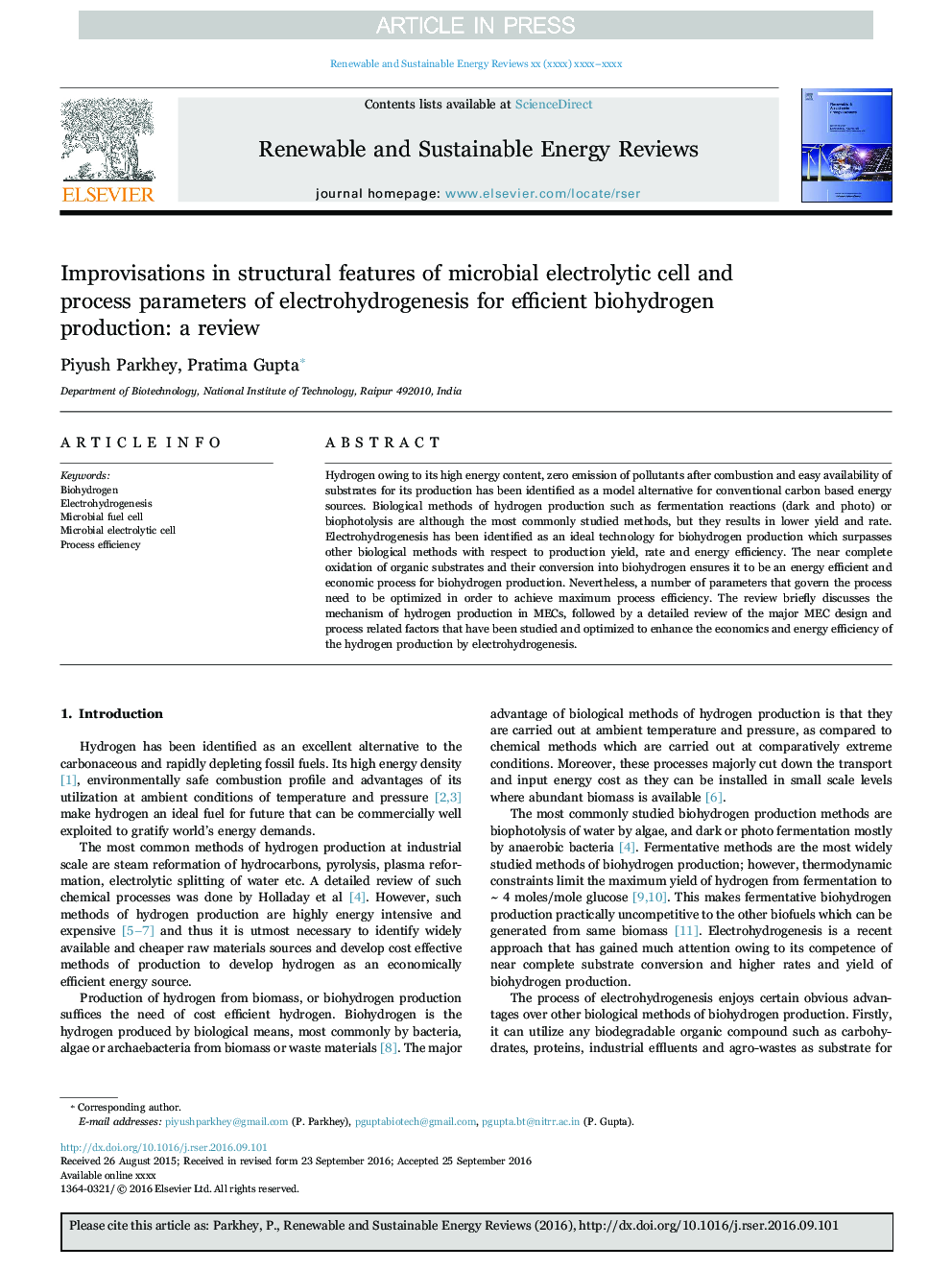| Article ID | Journal | Published Year | Pages | File Type |
|---|---|---|---|---|
| 5483393 | Renewable and Sustainable Energy Reviews | 2017 | 15 Pages |
Abstract
Hydrogen owing to its high energy content, zero emission of pollutants after combustion and easy availability of substrates for its production has been identified as a model alternative for conventional carbon based energy sources. Biological methods of hydrogen production such as fermentation reactions (dark and photo) or biophotolysis are although the most commonly studied methods, but they results in lower yield and rate. Electrohydrogenesis has been identified as an ideal technology for biohydrogen production which surpasses other biological methods with respect to production yield, rate and energy efficiency. The near complete oxidation of organic substrates and their conversion into biohydrogen ensures it to be an energy efficient and economic process for biohydrogen production. Nevertheless, a number of parameters that govern the process need to be optimized in order to achieve maximum process efficiency. The review briefly discusses the mechanism of hydrogen production in MECs, followed by a detailed review of the major MEC design and process related factors that have been studied and optimized to enhance the economics and energy efficiency of the hydrogen production by electrohydrogenesis.
Related Topics
Physical Sciences and Engineering
Energy
Renewable Energy, Sustainability and the Environment
Authors
Piyush Parkhey, Pratima Gupta,
